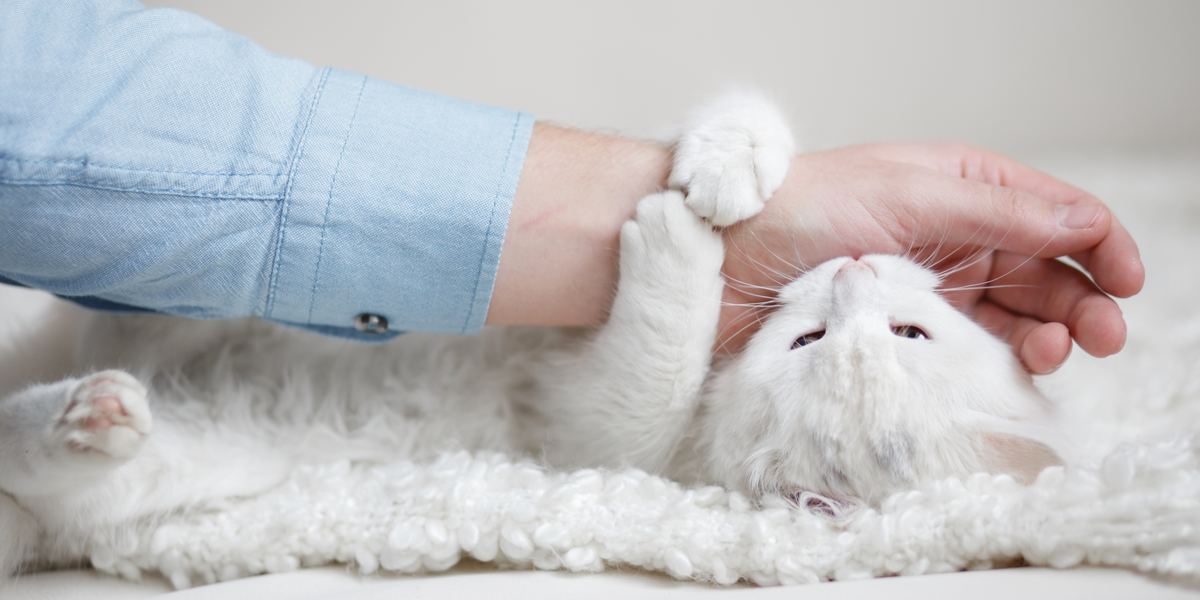As cat owners, we often find ourselves wondering about the peculiar behaviors of our feline friends. One such behavior that might seem confusing is when your cat licks you affectionately, only to follow it up with a bite. So, why does your cat engage in this peculiar behavior? Let’s find out.
The Lick and Bite Combo
While it may seem contradictory, the lick and bite combo is actually quite common among cats. It is important to understand that, in the feline world, grooming each other is a sign of social bonding and affection. When your cat licks you, it is showing love and acceptance. However, a gentle nibble after the lick is usually their way of setting boundaries, indicating that they have had enough interaction for the moment.
It is worth noting that some cats have a higher threshold for tactile stimulation. They may enjoy the licking for a longer duration before resorting to biting. Others may have a lower threshold and shift to biting more quickly. Understanding your cat’s personality and body language will help you interpret their behavior more accurately.

Credit: m.youtube.com

Credit: cats.com
Sensory Sensitivity
Cats have highly sensitive skin, and their tongues contain tiny barbs called papillae. When they lick you, it is not only a display of affection but also a way to gather information about you through their sense of taste and smell. These barbs allow them to groom themselves effectively, tackling dirt and tangles in their fur. However, the same intensity may be too much for human skin. Your cat may not realize that their licks can be uncomfortable or even painful for you, which is when they resort to biting.
If your cat tends to bite you after licking, it might be because they are hypersensitive to touch or certain sensations. Pay attention to their body language and observe if they display signs of discomfort or overstimulation. Understanding your cat’s sensory sensitivity will help you create a more comfortable environment for both of you.
Redirected Aggression
Another reason why your cat may exhibit the lick and bite behavior is redirected aggression. Cats are territorial animals, and any external stimuli that threaten their space can trigger a defensive response. If your cat is in an agitated state due to something in their environment, such as the presence of another animal or unfamiliar sounds, they may show this aggression towards you after displaying affection.
Pay attention to any signs of agitation or uneasiness in your cat, such as dilated pupils, flattened ears, or aggressive body language. If you notice these signs, it is best to create a calming environment and give your cat some space to decompress. By addressing the underlying cause of their stress, you can reduce the likelihood of them resorting to the lick and bite behavior.
Playful Behavior
Cats are natural hunters, and play fighting is an instinctual behavior. When your cat licks you and follows it up with a bite, it could be their way of engaging in playful behavior. They may see you as their playmate and mimic hunting by gently biting you.
However, it is crucial to establish boundaries during playtime. If their bites ever become too rough or painful, it’s important to redirect their attention to appropriate toys and rewards. By providing them with alternative outlets for their hunting instincts, such as interactive toys or engaging in play sessions, you can help curb the biting behavior.
Frequently Asked Questions Of Why Does My Cat Lick Me Then Bite Me
Why Does My Cat Lick Me Then Bite Me?
Cats may display this behavior as a form of affection or playfulness, but it can also indicate overstimulation or frustration. Understanding your cat’s body language can help determine the reason behind their licking and biting.
Is It Normal For Cats To Lick Their Owners?
Yes, licking is a common behavior that can signify various things such as bonding, grooming, or seeking attention from their owners. It’s a sign of affection, similar to how cats groom each other in social relationships.
How Can I Tell If My Cat’s Licking Is A Sign Of Affection?
Observe your cat’s body language while they are licking you. If their ears are relaxed, tail is calm, and they have a relaxed body posture, it is likely a sign of affection. However, if they show signs of tension or aggression, it may be a different behavioral issue.
Why Do Cats Sometimes Bite After Licking?
Cats may bite after licking due to overstimulation or as a playful response. If your cat tends to bite immediately after licking, it could indicate that they have become overly excited or may have a low tolerance for prolonged physical contact.
Conclusion
The lick and bite behavior in cats may seem confusing, but it has its roots in feline instincts and behaviors. Your cat’s actions are an attempt to communicate their affection, set boundaries, express discomfort, or engage in playful behavior.
By understanding their body language, sensory sensitivity, and the underlying causes of their behavior, you can better respond to their needs and ensure a harmonious relationship with your feline companion.

Leave a Reply